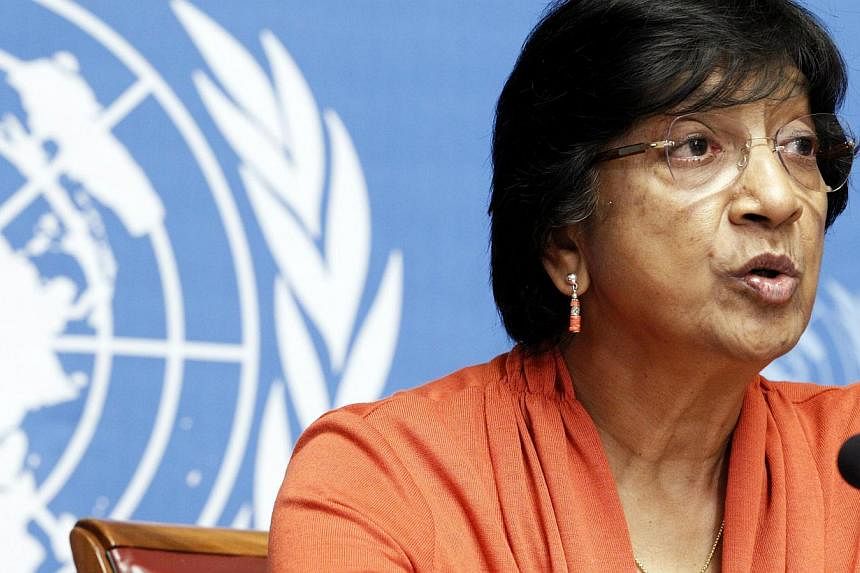NEW DELHI (REUTERS) - Sri Lanka accused the United Nations' human rights chief on Thursday of"personal bias" over an investigation into allegations of war crimes committed during the country's 26-year civil war.
In an interview with the Thomson Reuters Foundation published on Monday, Ms Navi Pillay said that even though Colombo had refused to cooperate, the investigation could still go ahead as there was a wealth of information outside the country.
Sri Lanka said Ms Pillay, a South African of Tamil descent, had shown a "lack of objectivity".
"The High Commissioner, who is scheduled to leave office at the end of this month, making public pronouncements to the media on an investigation which has commenced only recently is a clear indication of personal bias," said a foreign ministry statement.
"It is evidence of an attempt to influence the investigation process and make it follow a preconceived trajectory."
The ministry questioned the credibility of sources, adding that Ms Pillay had previously sought "to endorse exaggerated claims of former UN sources of spurious credentials by including such uncorroborated statistics in UN documentation."
Ms Pillay's spokeswoman, Ravina Shamdasani, declined to comment, other than saying that she "hoped that the government of Sri Lanka will review its decision not to engage with the investigation."
Sri Lankan government forces have been accused of widespread human rights violations in the final stages of the war which ended in May 2009.
The United Nations estimated in a 2011 report that about 40,000 Tamil civilians were killed in the final weeks of the war, mostly by the army. Sri Lanka has rejected the allegation, and said it was conducting its own investigation.
But in March, the UN Human Rights Council (UNHRC) voted to investigate the deaths of some 100,000 people, saying President Mahinda Rajapaksa had failed to do so properly.
Sri Lanka said it would not cooperate or grant visas to UN investigators, who began their work on July 1.
The 12-member team is based in Geneva but will travel to other countries when necessary. They will collect information and seek to verify allegations of atrocities. The findings will be presented to the UNHRC in March.
The foreign ministry rejected Ms Pillay's comparison of Sri Lanka to Syria and North Korea, where UN investigators also do not have access.
It is not the first time the United Nations has faced criticism from the Sri Lankan government.
Ms Pillay's predecessor, Louise Arbour, was criticised for raising concern over human rights during the war, and former UN humanitarian affairs head John Holmes was called a "terrorist" for saying Sri Lanka had one of the worst records for aid worker safety.

